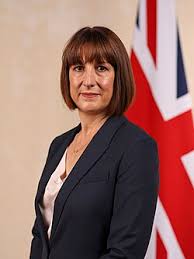Chancellor of the Exchequer Unveils Latest Budget Measures

Introduction
The role of the Chancellor of the Exchequer is pivotal in shaping the UK’s economic landscape. Responsible for overseeing the Treasury and managing the country’s finances, the Chancellor’s budget announcements are key indicators of the government’s fiscal policy and economic direction. As the UK grapples with ongoing economic challenges, the recent budget outlined by Chancellor Jeremy Hunt has generated much discussion among economists, businesses, and citizens alike.
Key Budget Highlights
On October 9, 2023, Chancellor Hunt delivered a budget that was marked by a commitment to fiscal responsibility while aiming to stimulate economic growth. In his address, he highlighted several important measures:
- Tax Adjustments: The Chancellor announced a targeted reduction in corporate tax rates from 25% to 23%—a move designed to incentivise business investment and drive job creation. This reduction aims to bolster the competitive edge of UK businesses in the global market.
- Public Spending: To address crucial public services, a proposed increase in funding for the National Health Service (NHS) was revealed, committing an additional £5 billion over the next two years to reduce waiting times and improve service delivery.
- Cost of Living Support: Recognising the pressures faced by households, the budget includes a £2 billion package for energy bill support, specifically targeted at low-income families. This is aimed at easing the burdens of high energy costs during the winter months.
Economic Outlook
The Chancellor’s budget comes as inflation continues to be a concern in the UK, with the Bank of England monitoring trends closely. Current inflation rates stand at approximately 6.5%, above the Bank’s target level, prompting discussions on potential interest rate hikes. Chancellor Hunt indicated that finding a balance between encouraging growth and managing inflation will be crucial in the upcoming months.
Public Reception and Future Implications
The reception of the Chancellor’s proposals has been mixed. While business leaders praised the corporate tax cuts as a step towards fostering a more conducive environment for growth, critics have raised concerns about whether the measures adequately address the needs of the most vulnerable populations struggling with the cost of living. In the weeks to follow, the government will face scrutiny over the implementation of these policies and their broader economic impact.
Conclusion
The importance of the Chancellor of the Exchequer and their budget cannot be understated as it sets the tone for the country’s economic policy. With the economic outlook remaining uncertain, the strategies put forth by Chancellor Hunt will be closely watched and debated. As citizens await the tangible impacts of this budget, it underscores the need for continued engagement and discussion around fiscal policy and its effects on everyday life.






